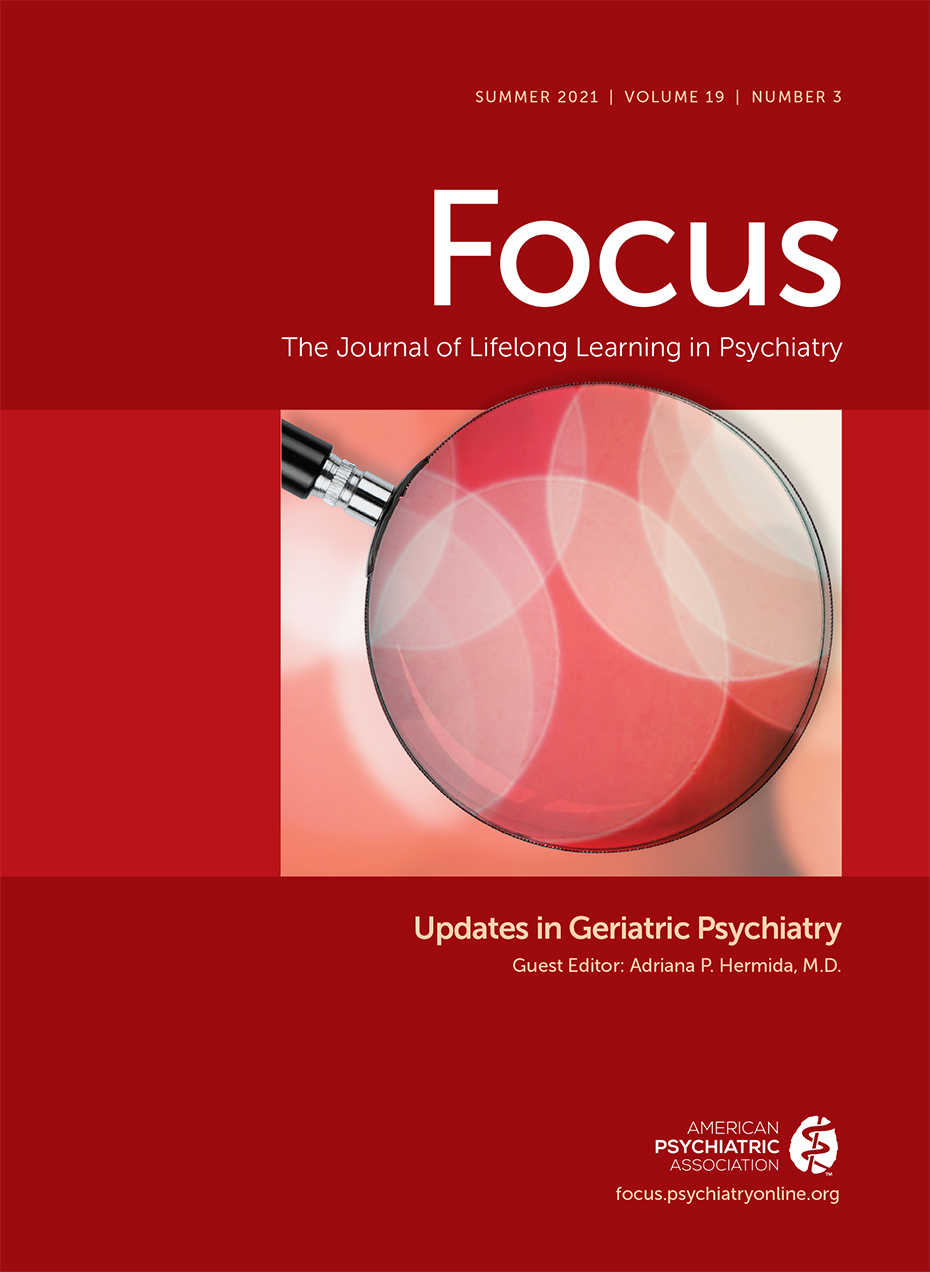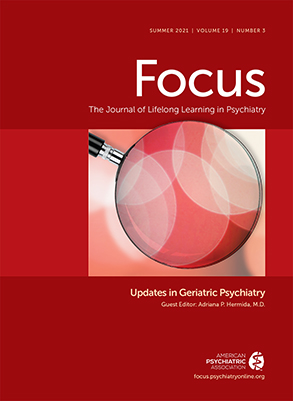Data on treatment of personality disorders in the elderly are limited, but there have been important clinical advances in small studies. A study of dialectical behavioral therapy (DBT) in patients with depressive disorder and personality disorder showed positive results on improvement of depression. Thirty-four depressed adults over age 60 were randomized to treatment with medications only or medications plus group skill-based DBT plus a 30-minute weekly coaching session (
13). Participants who received DBT were more likely to remit from depression (
13). This study did not assess the effect of treatment on personality disorder as a primary outcome measure. In another study of 45 participants aged 55 or over, patients with a personality disorder and major depressive disorder were randomized to receive medication management only versus standard DBT in combination with medication management (
13). Twenty of the 45 patients had obsessive-compulsive disorder, and an additional 10 had avoidant personality disorder (
13). Over the course of treatment, both groups showed improvement in major depressive disorder symptoms and personality functioning (
13). A total of 16 patients in both groups remitted from their personality disorders over the course of treatment (
13). A small study of schema therapy has shown that this therapeutic option is promising. Eight patients with cluster C personality disorder were repeatedly assessed during a baseline phase of random length and then had schema-based therapy over the course of eight months. Authors found a high effect size, and seven patients remitted from their personality disorder (
14). An earlier study with a heterogeneous patient population, including 10 patients with various personality disorders, also indicated beneficial effects of group schema therapy (
15).
There are no medications for treating personality disorders in older adults that have been approved by the Food and Drug Administration, and no randomized controlled studies have assessed medications specifically for treating personality disorders in older adults. However, in practice, medications are commonly used for target symptoms such as impulsive aggression or affective instability, so it is useful to review evidence from the general adult population. Most trials of pharmacotherapy for personality disorders have been conducted for patients with borderline personality disorder. Among patients with borderline personality disorder, there is accumulating evidence that divalproex can reduce impulsive aggression, irritability, and the overall severity of borderline personality disorder (
16,
17). Topiramate has been found to decrease anxiety and interpersonal rejection sensitivity in patients with borderline personality disorder (
16,
18). The beneficial effects of topiramate were sustained in long-term open-label follow-up. There are suggestions that naltrexone may reduce self-harm and dissociation (
16,
19). Several second-generation antipsychotics have been found to reduce impulsive aggression, psychosis, and interpersonal rejection sensitivity in patients with borderline personality disorder (
20). Olanzapine and aripiprazole are the best studied second-generation antipsychotics in this regard. Aripiprazole, but not olanzapine, is effective in reducing nonsuicidal self-injury in patients with borderline personality disorder (
16,
21). Small trials of omega-3 fatty acids for borderline personality disorder have shown positive effects: decreased aggression and parasuicidal behaviors, improved affect, and decreased stress reactivity (
16,
20,
22). There are hints that antipsychotics are helpful for psychotic symptoms in schizotypal personality disorder, whereas guanfacine may attenuate cognitive deficits (
16,
23,
24). Serotonergic agents are commonly used in avoidant personality disorder, as a comorbid social anxiety disorder is frequently present, but the impact of this approach on outcomes in avoidant personality disorder per se (rather than on outcomes in social anxiety disorder) has not been tested in clinical trials. For patients with social anxiety disorder and comorbid avoidant personality disorder, a trial of a selective serotonin reuptake inhibitor, monoamine oxidase inhibitor, gabapentin, or pregabalin is indicated (
25). Information on the pharmacotherapy of other personality disorders is sparse. In all cases, care must be taken to use a consistent method to evaluate symptom severity, and the duration of an adequate trial must be defined to allow for clear decisions on whether a medication or intervention is clinically beneficial (
16).

